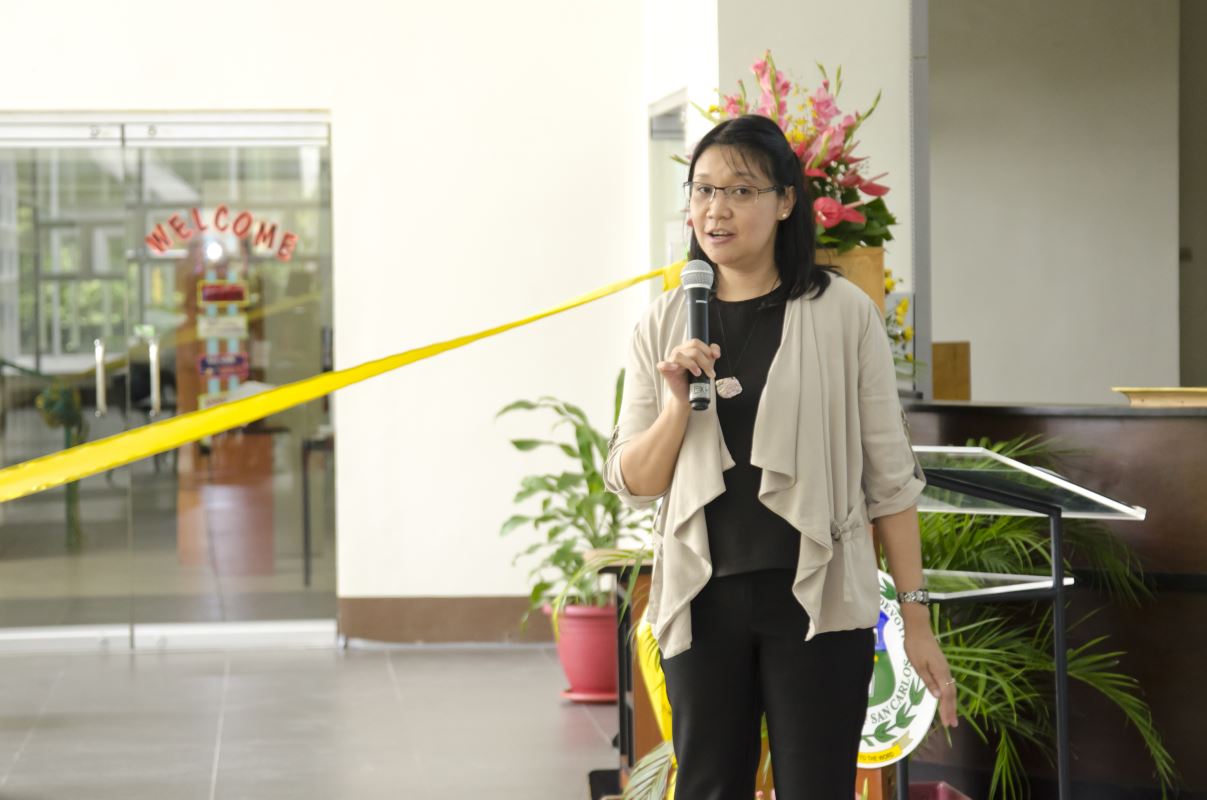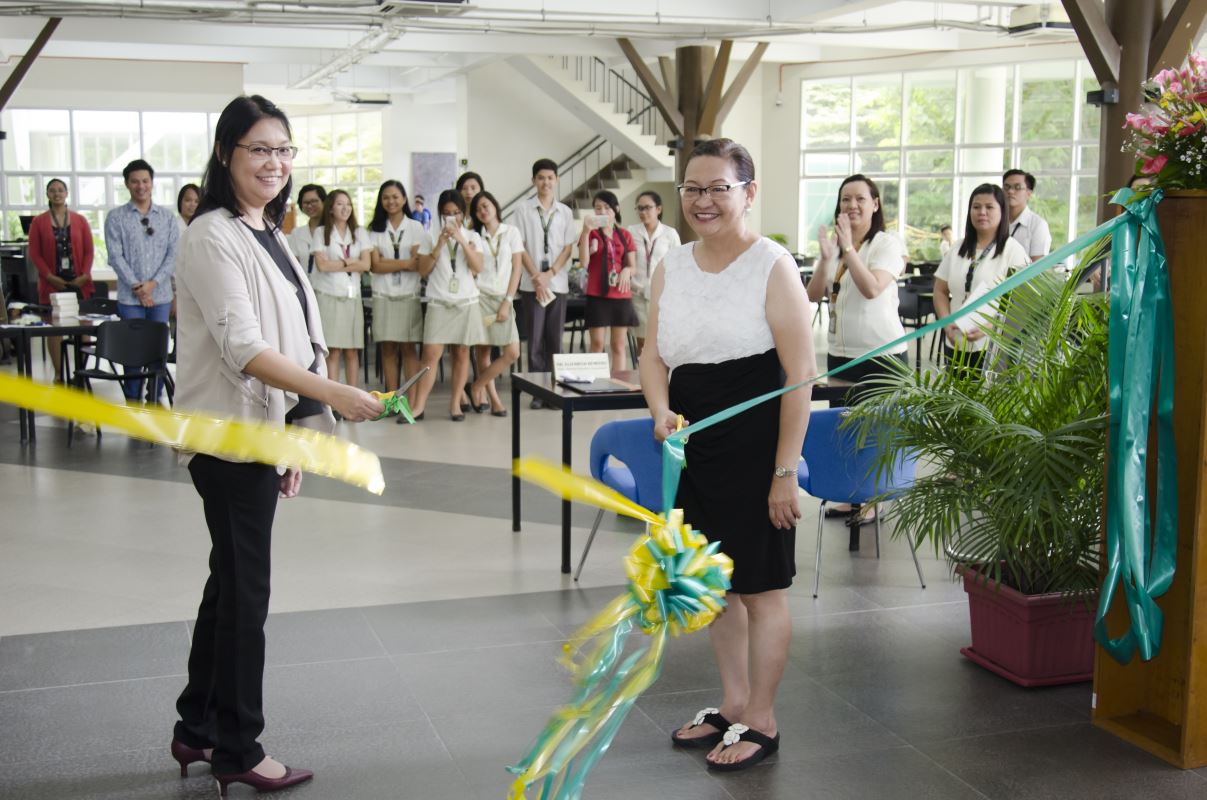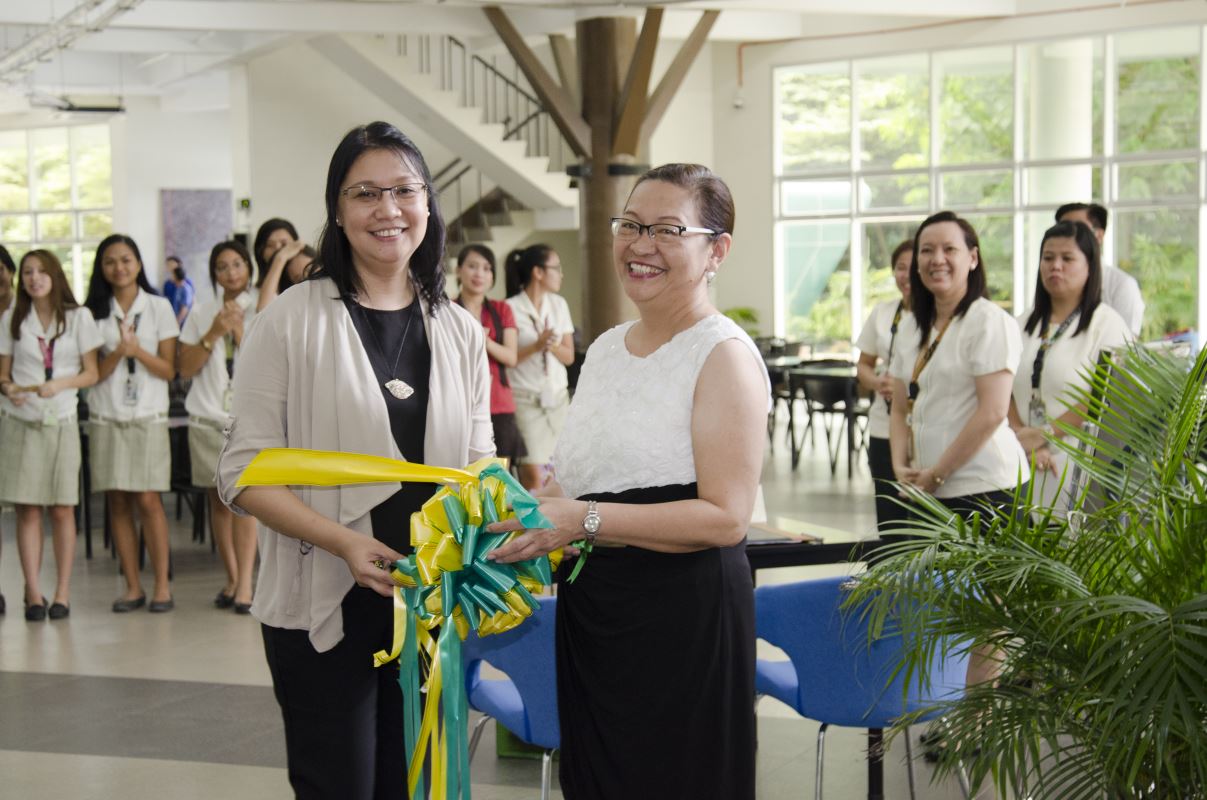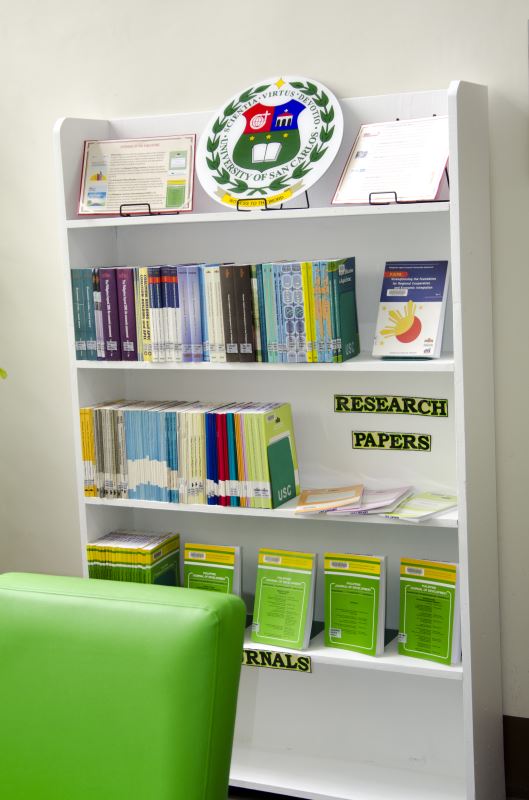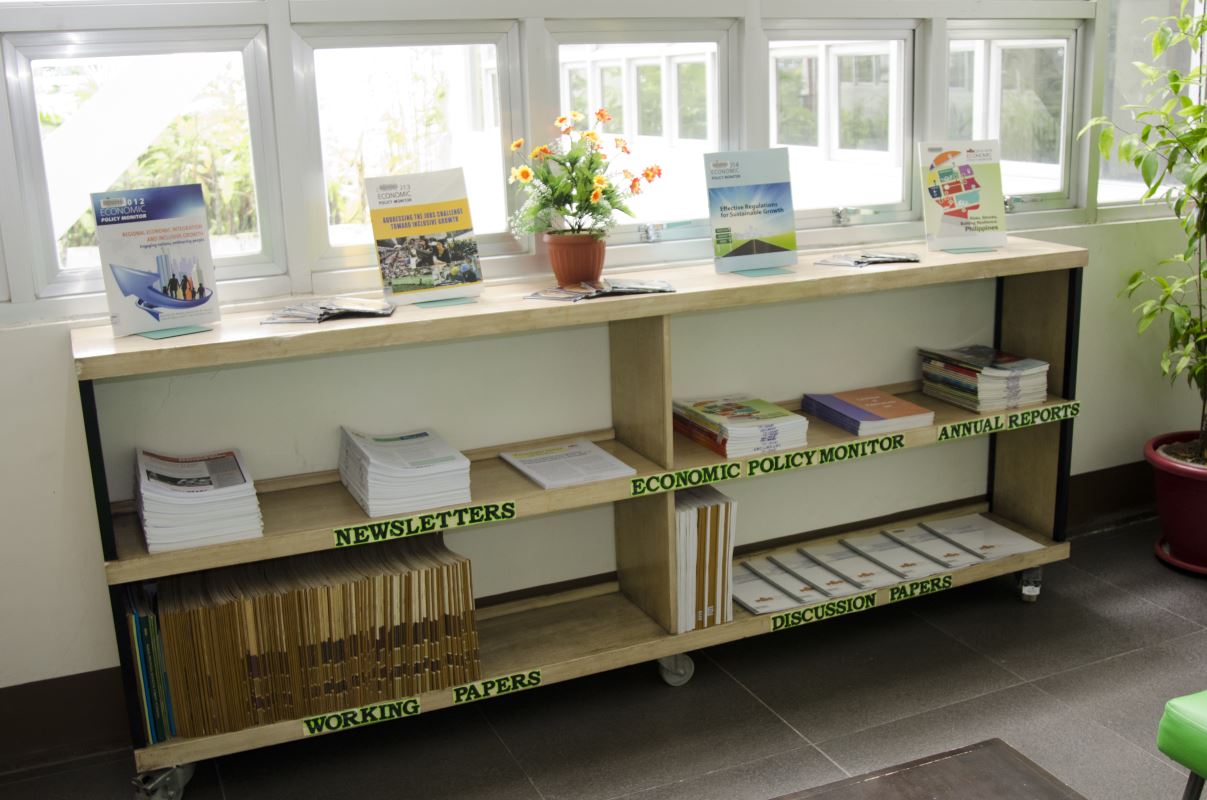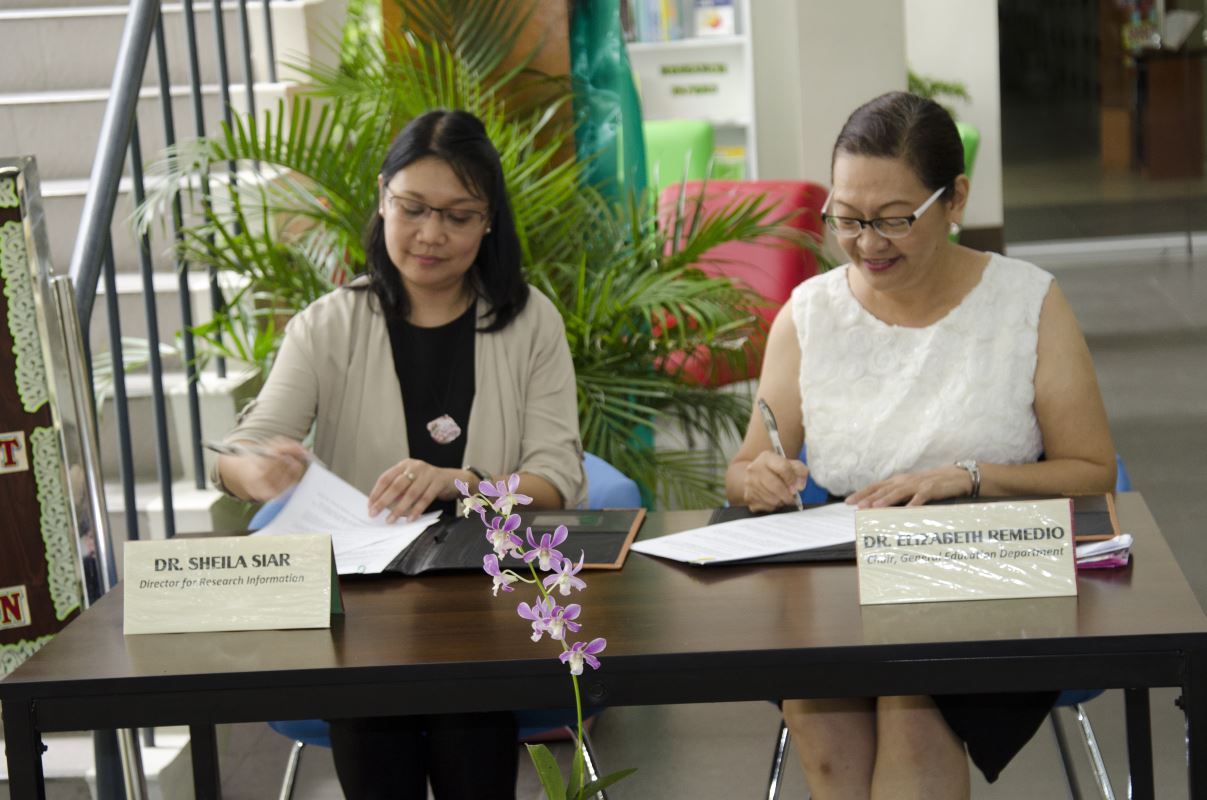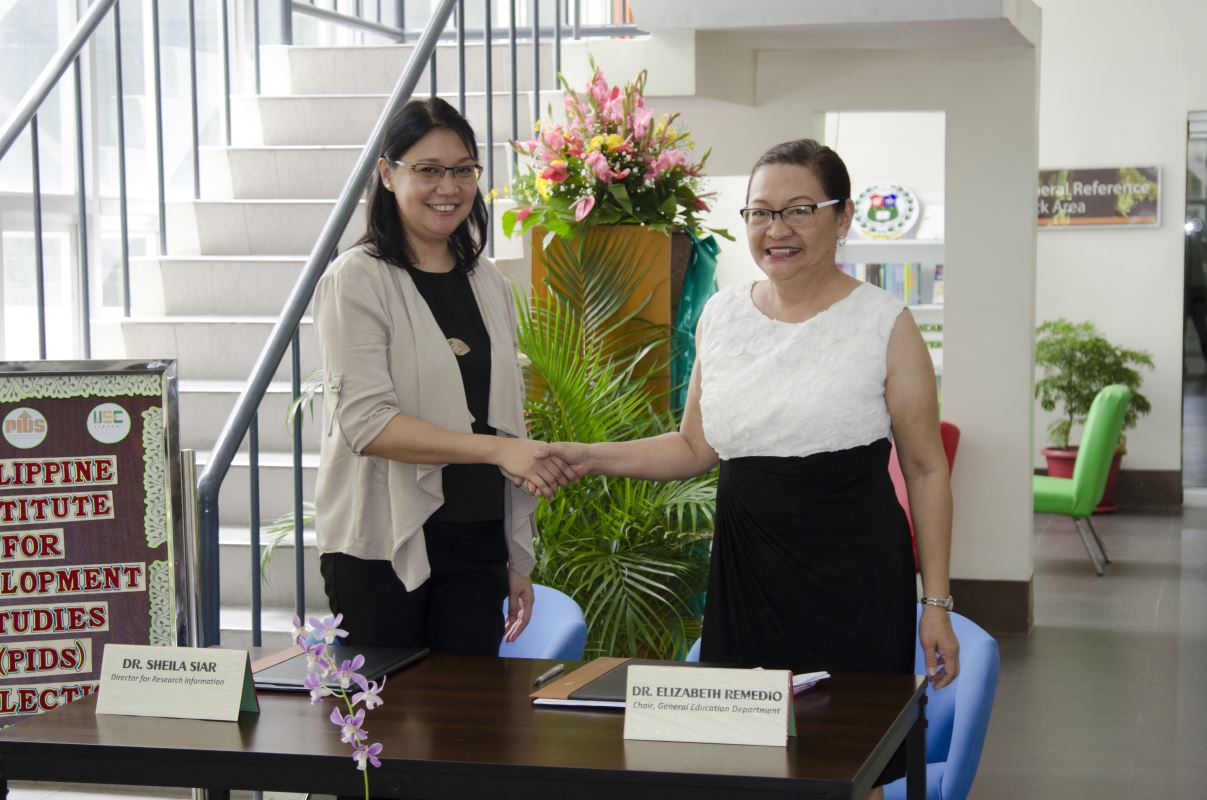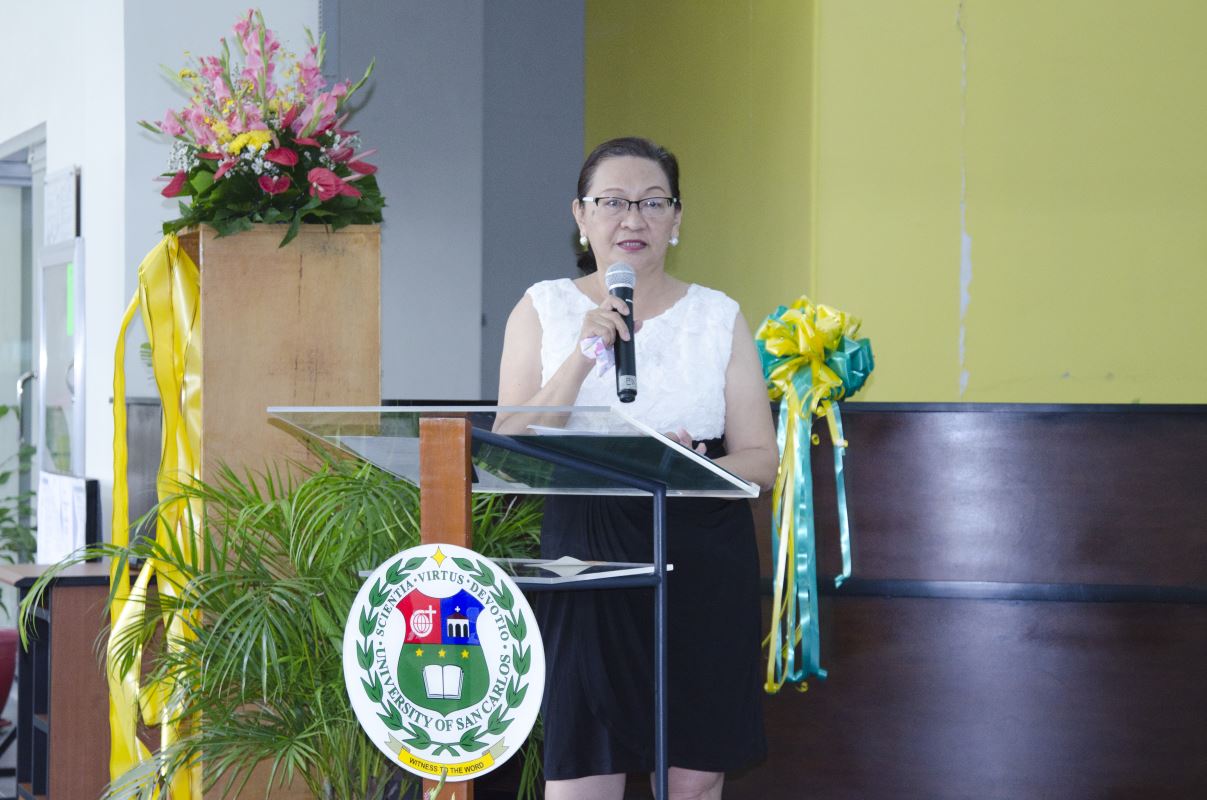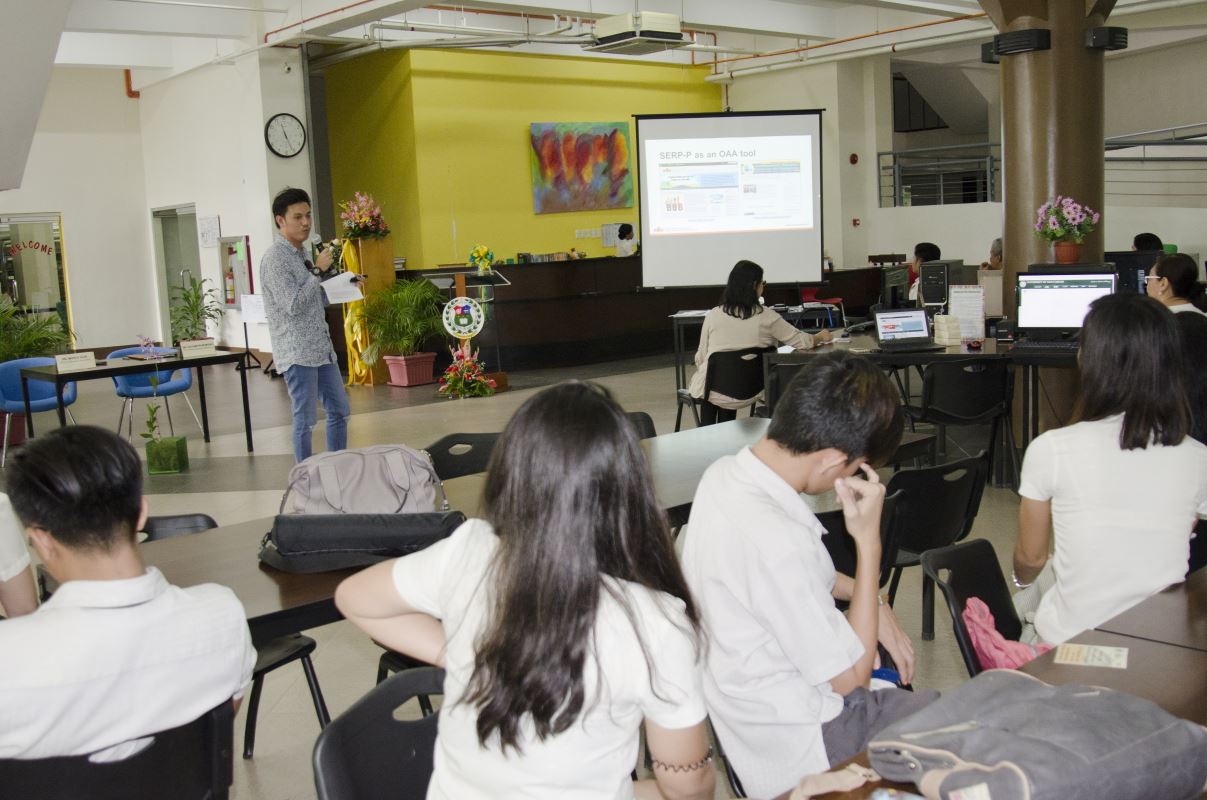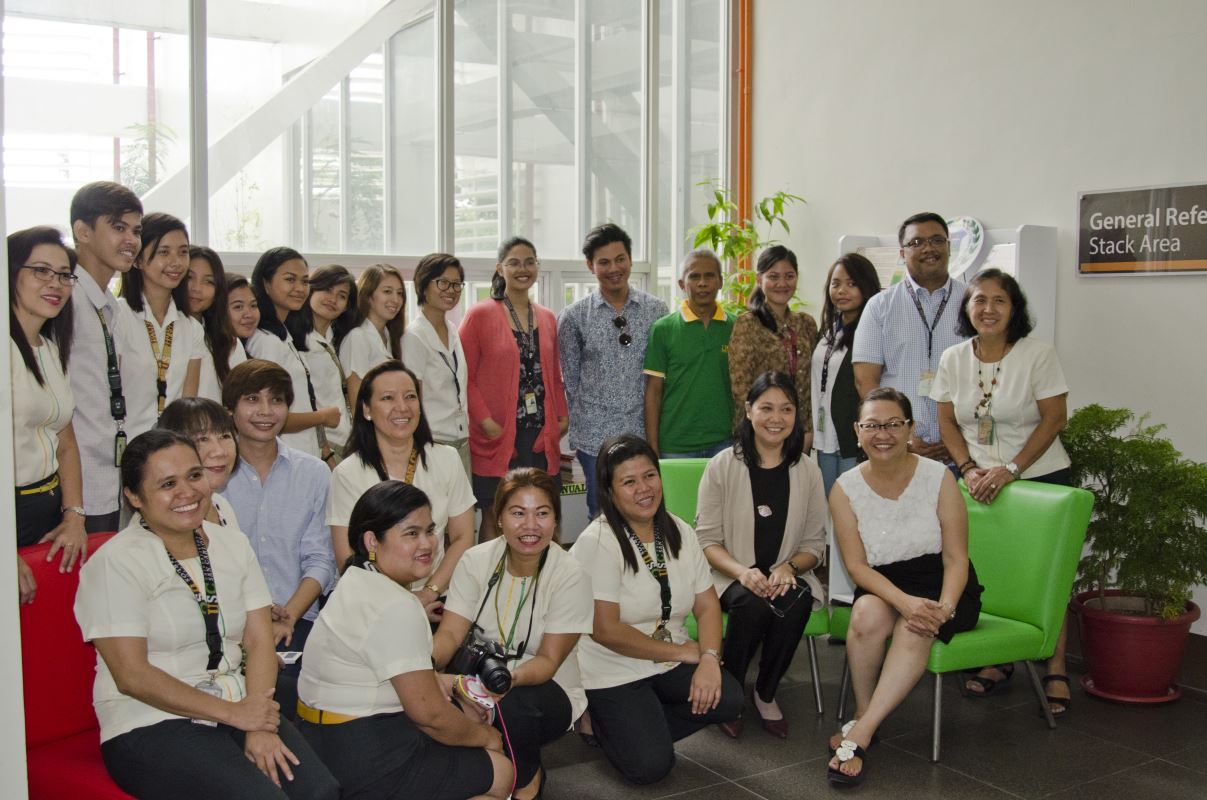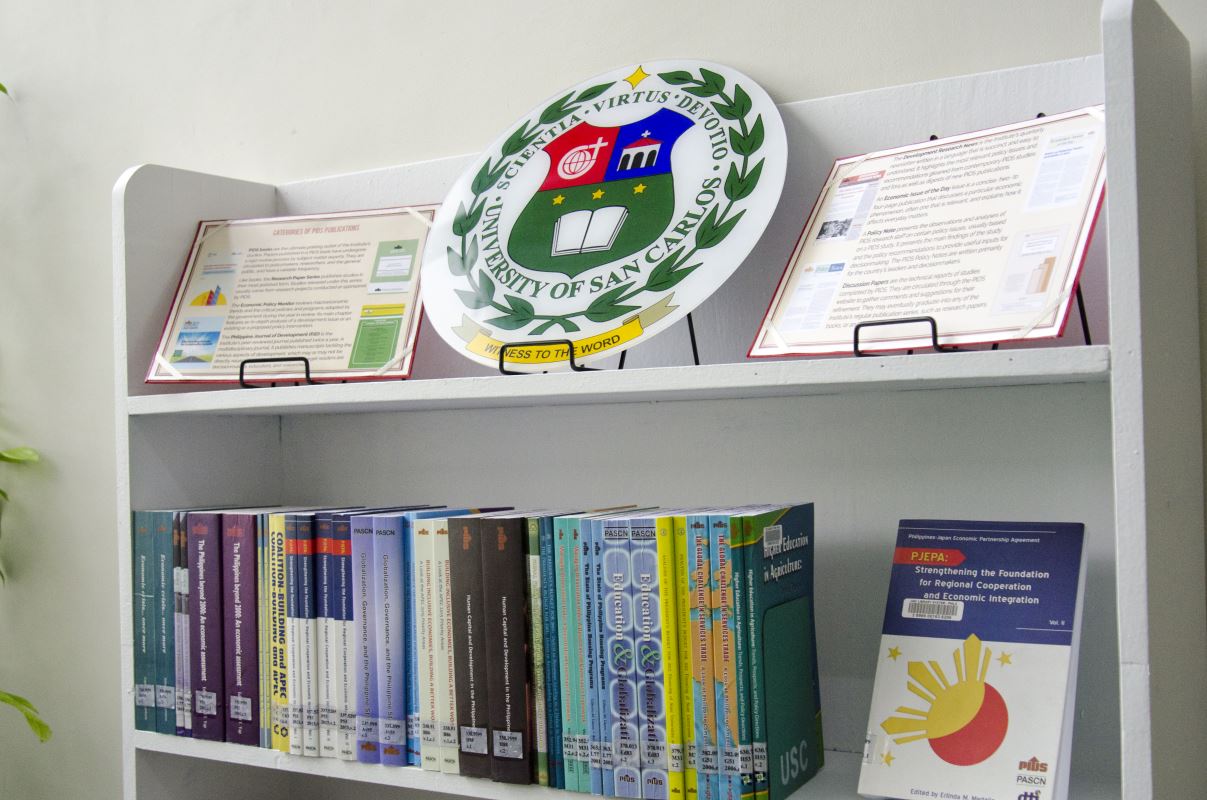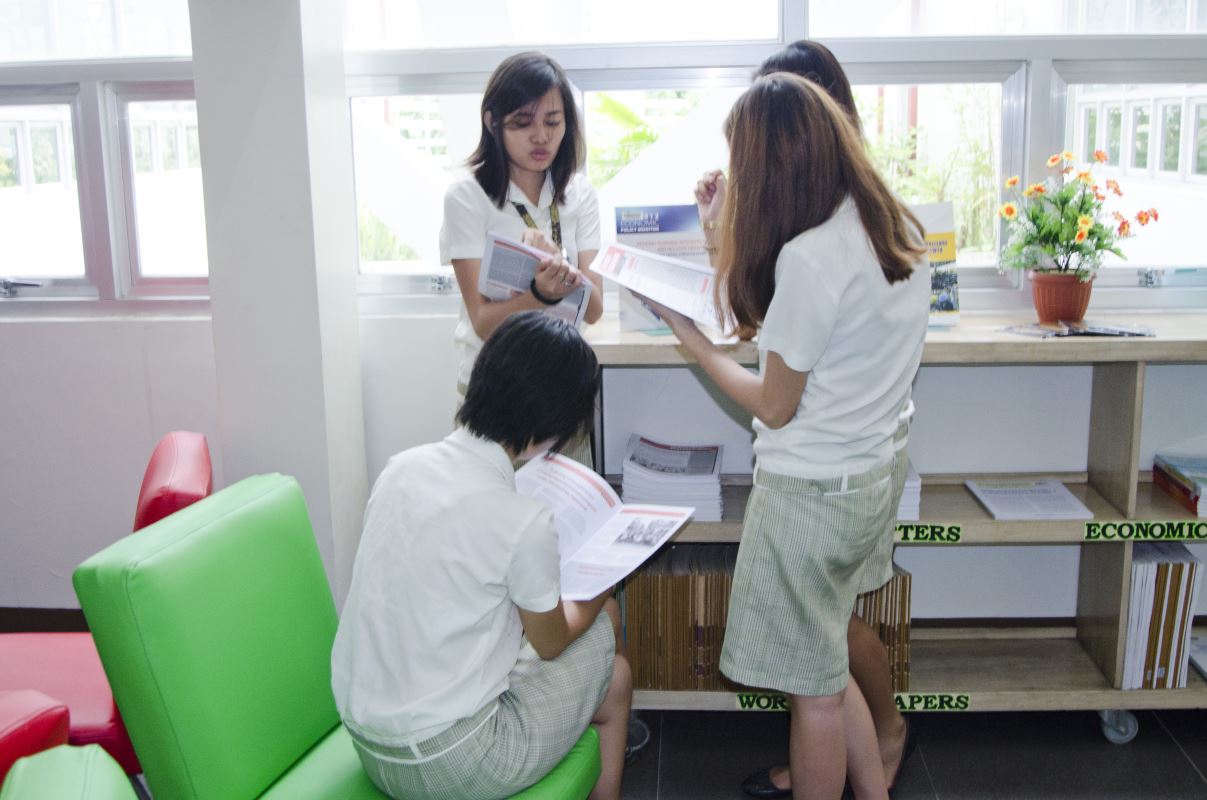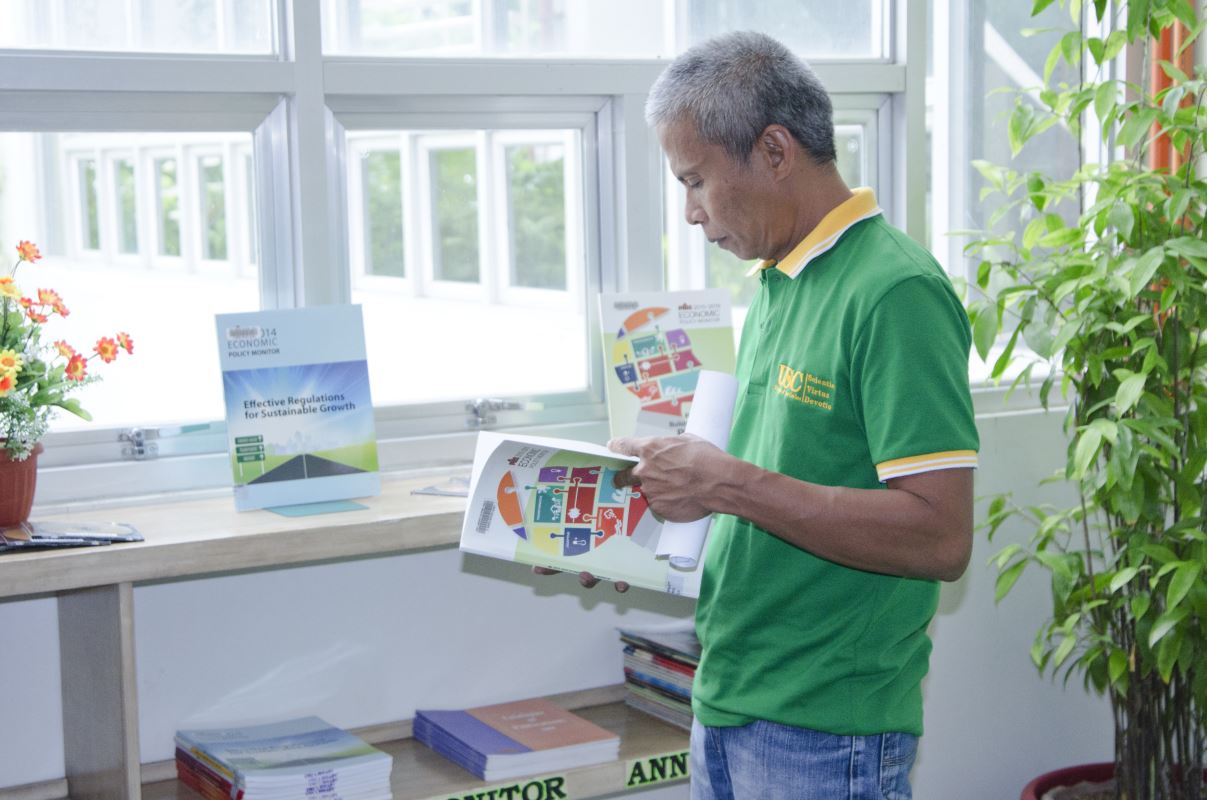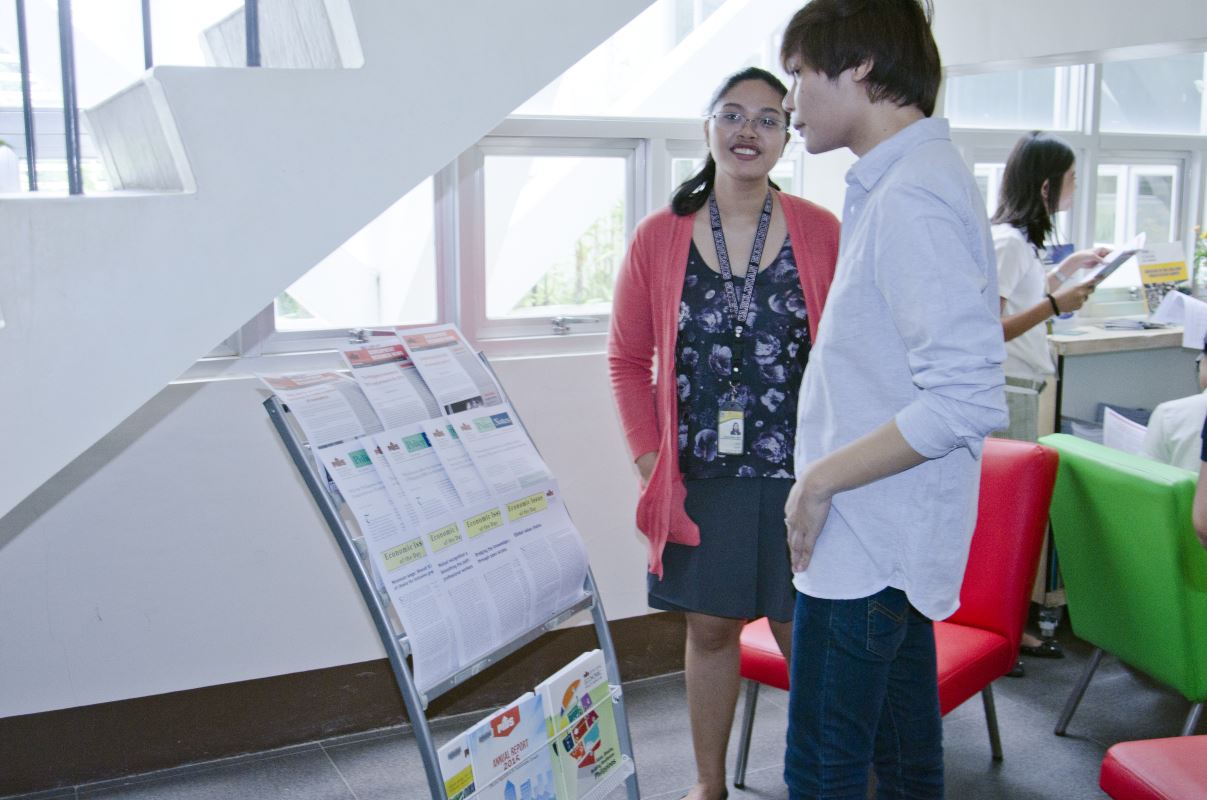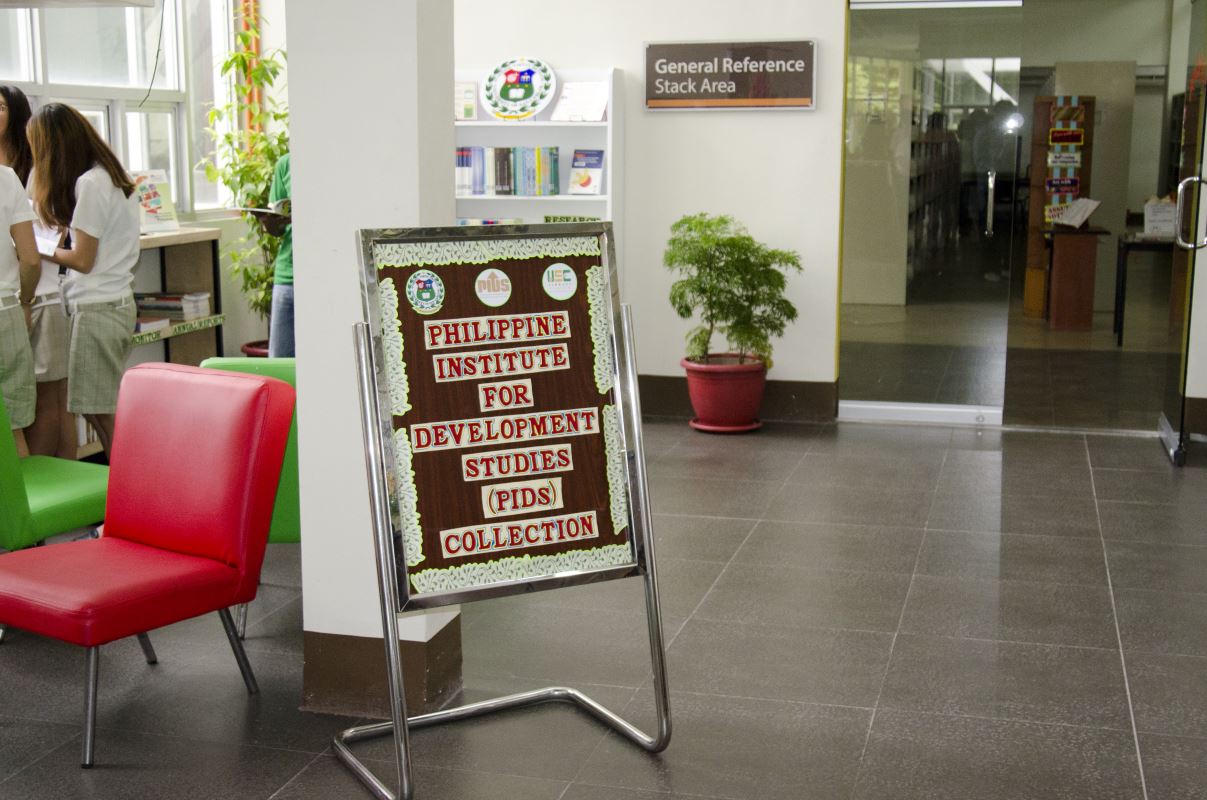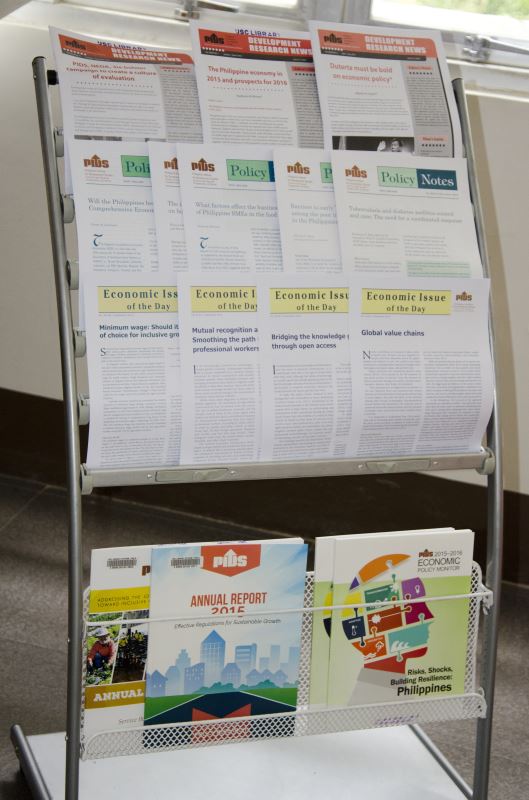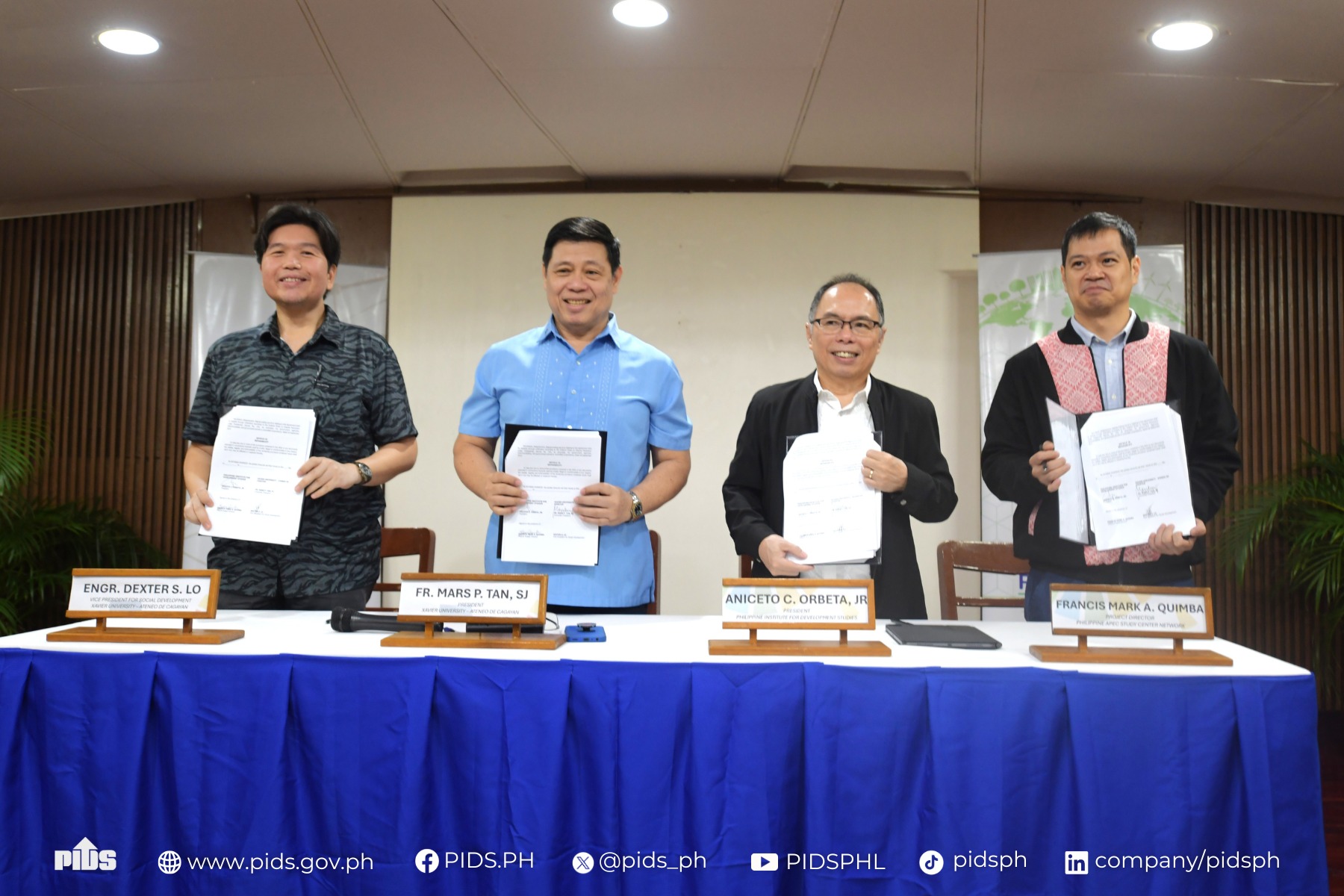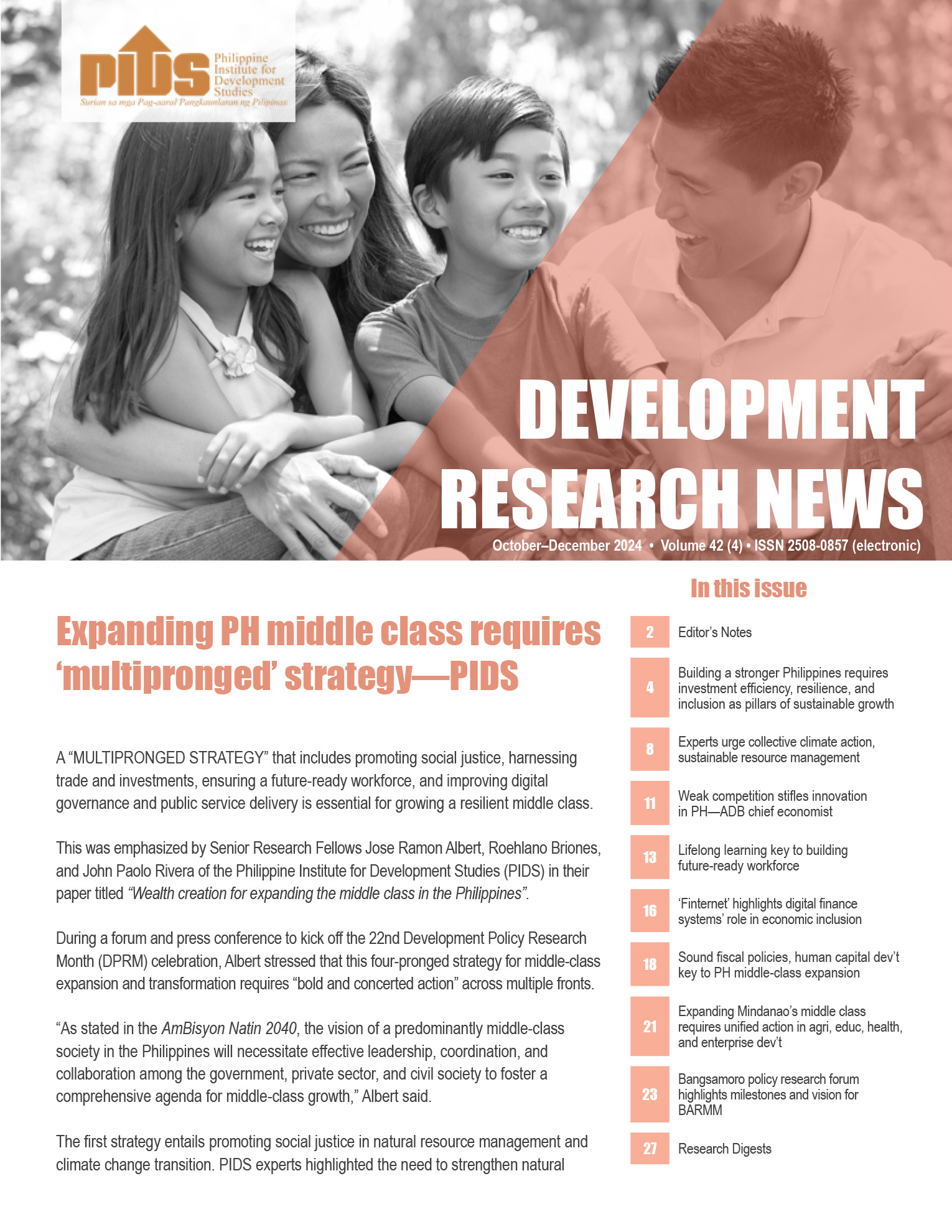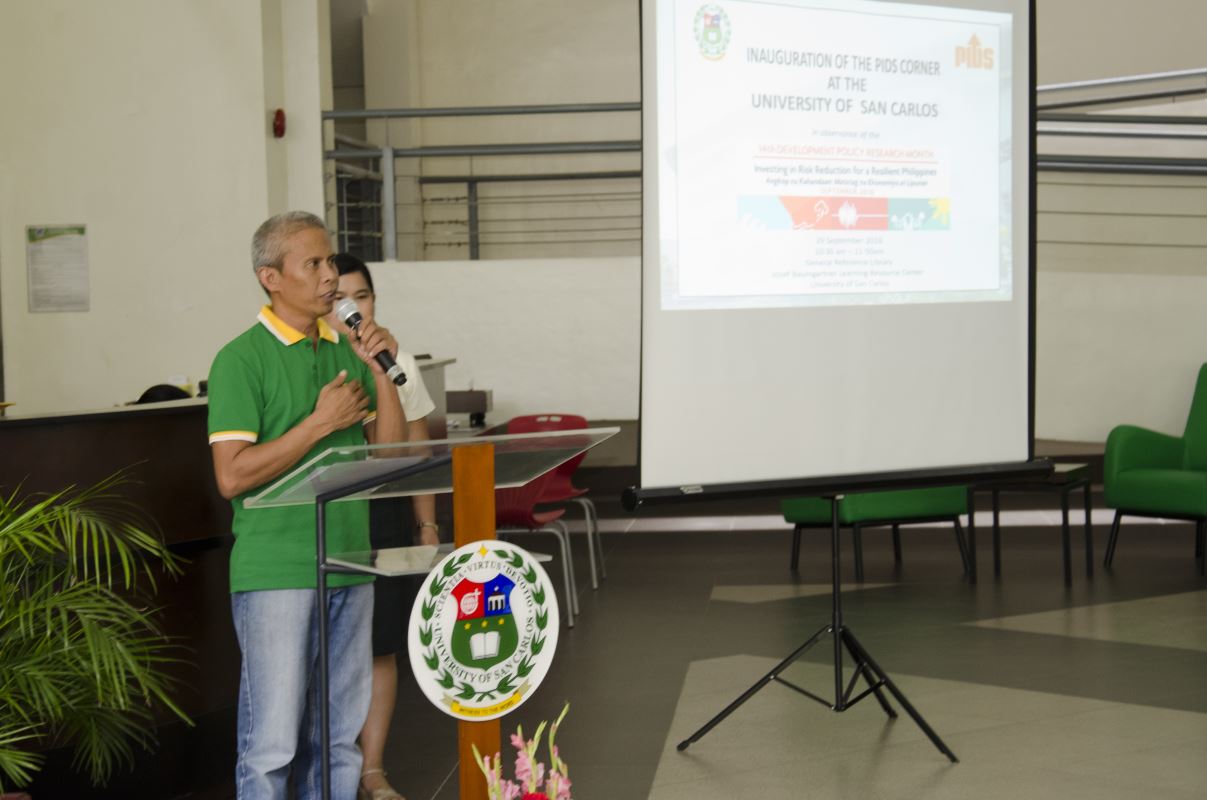
The University of San Carlos (USC), a premier academic and research institution in the Visayas region, now has a PIDS Corner. Inaugurated on September 29, the Corner is located at the Josef Baumgartner Learning Resource Center, the library of the university’s Talamban Campus in Cebu City.
The state-of-the art knowledge facility is dubbed as the biggest library in the country. Built on an expansive area, the library has four floors, a basement, and split-level floors.
The PIDS Corner is located on the ground floor of the library. It contains printed copies of the Institute’s publications, which are also available on the PIDS website (www.pids.gov.ph) and the Socioeconomic Research Portal for the Philippines (serp-p.pids.gov.ph).
The inauguration was a fitting activity to cap the 14th Development Policy Research Month (DPRM) celebration this year, which is focused on the theme of building a resilient Philippines.
According to PIDS Director for Research Information Sheila Siar in her remarks of bequest on behalf of PIDS President Gilberto Llanto: “Building an educated citizenry is key to building a resilient country. Education is essential to produce citizens that have the right combination of knowledge, skills, values, and attitudes to become productive and responsible citizens who can actively participate in development processes, make informed decisions, and can absorb shocks and stresses and adapt to changes around them.”
Siar noted that building an educated citizenry through the PIDS Corners is the Institute’s way of helping build a resilient Philippines through knowledge sharing.
In her remarks of acceptance, Dr. Elizabeth Remedio, who represented USC President Fr. Dionisio Miranda, said that the PIDS Corner is “a symbol of enormous wealth”, as research materials empower and capacitate students, teachers, and researchers to know, reflect, and evaluate the things that matter. With more resources, Remedio said “we become better policy stakeholders and better citizens.”
“This is the only way we can fight the poverty of knowledge; we are better equipped in life if we have studies, research, and education,” she added.
Remedio is USC’s coordinator in the Commission on Higher Education Philippine Higher Education Research Network and a faculty member of the College of Education.
With the opening of the PIDS Corner at USC, there are now 24 PIDS Corners in strategic places in the country. Started in 2006, this dissemination andadvocacy project of PIDS aims to make socioeconomic materials produced by PIDS more accessible in areas outside of Metro Manila.#
The state-of-the art knowledge facility is dubbed as the biggest library in the country. Built on an expansive area, the library has four floors, a basement, and split-level floors.
The PIDS Corner is located on the ground floor of the library. It contains printed copies of the Institute’s publications, which are also available on the PIDS website (www.pids.gov.ph) and the Socioeconomic Research Portal for the Philippines (serp-p.pids.gov.ph).
The inauguration was a fitting activity to cap the 14th Development Policy Research Month (DPRM) celebration this year, which is focused on the theme of building a resilient Philippines.
According to PIDS Director for Research Information Sheila Siar in her remarks of bequest on behalf of PIDS President Gilberto Llanto: “Building an educated citizenry is key to building a resilient country. Education is essential to produce citizens that have the right combination of knowledge, skills, values, and attitudes to become productive and responsible citizens who can actively participate in development processes, make informed decisions, and can absorb shocks and stresses and adapt to changes around them.”
Siar noted that building an educated citizenry through the PIDS Corners is the Institute’s way of helping build a resilient Philippines through knowledge sharing.
In her remarks of acceptance, Dr. Elizabeth Remedio, who represented USC President Fr. Dionisio Miranda, said that the PIDS Corner is “a symbol of enormous wealth”, as research materials empower and capacitate students, teachers, and researchers to know, reflect, and evaluate the things that matter. With more resources, Remedio said “we become better policy stakeholders and better citizens.”
“This is the only way we can fight the poverty of knowledge; we are better equipped in life if we have studies, research, and education,” she added.
Remedio is USC’s coordinator in the Commission on Higher Education Philippine Higher Education Research Network and a faculty member of the College of Education.
With the opening of the PIDS Corner at USC, there are now 24 PIDS Corners in strategic places in the country. Started in 2006, this dissemination andadvocacy project of PIDS aims to make socioeconomic materials produced by PIDS more accessible in areas outside of Metro Manila.#
Gallery Images:

